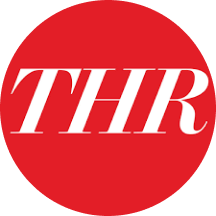Israel Peter was 6 years old when Boko Haram Islamic extremists attacked his village in northeastern Nigeria and his family fled. Eight years later, he still hasn’t returned to school.
A rare opportunity to change that disappeared this year, when a nonprofit offering free education to Boko Haram victims rejected Peter’s application.
It cited the abrupt loss of U.S. funding as the Trump administration dismantled the U.S. Agency for International Development. Multiple backers of the school had received USAID funding.
"When I see some students wearing uniform and going to school, I feel sad; I wish like I’m one of them,” said Peter, who dreams of being an engineer.
He spends his days helping out at his father’s small farm. They cannot afford to pay school fees.
The school run by the Future Prowess Islamic Foundation has benefited 3,000 children in Borno state, the epicenter of the 16-year conflict with Boko Haram that has displaced and orphaned many.
Boko Haram, which wants to establish Islamic law in the region, forbids Western education and rose to global prominence after its mass abductions of students.
The Associated Press visited the region to document how funding cuts by the U.S., Nigeria’s once biggest donor, have affected civilians in one of the world’s longest-running conflicts.
More than 35,000 people have been killed and 2.6 million others displaced in parts of Nigeria, Cameroon, Niger and Chad.
With U.S. funding gone, the school has let go of 700 of its 2,200 students as well as 20 teachers, officials said, with no new enrollment and further cuts likely.
Millions of people in the region have relied heavily on aid groups and foreign partners to survive.
USAID had funded a range of projects, from healthcare to education and social welfare, disbursing $1.5 billion to Nigeria between 2023 and 2024. Now, only a few projects like PEPFAR survive.
Despite having the highest number of out-of-school children in the world — over 10 million, according to UNICEF — Nigeria’s government funds education at between 4% and 7% of its federal budget.
That’s short of the 15% to 20% global benchmark recommended by UNESCO.
The impact of the under-funding is far worse in the northeast, where conflict has ruined key infrastructure and families are preoccupied with survival.
The Future Prowess Islamic Foundation school was founded in Borno state in 2007, two years before the fighting began, initially providing education to orphans. But its mission expanded to support children affected by the conflict.
Now school officials and aid groups worry that children they can no longer support might end up being welcomed by the extremists.
In a region with few options for education, the Future Prowess Islamic Foundation has been credited with giving thousands of children over the years a rare chance to achieve their dreams.
"Without proper funding, these students that were enrolled in the school maybe possibly they could have been roaming the streets, and only God knows where they will end up, with the insurgency that we have," said Suleiman Aliyu Abdullahi, Director of Future Prowess Islamic Foundation Schools.
Although primary education is officially free in Nigeria, parents in most states including Borno still pay fees for maintenance and other needs that often range from 5,000 naira ($3.27) to 15,000 naira ($9.80). That can be a month’s earnings for many in one of the world’s poorest countries.
Ramatu Usman is among the students dropped by the school this year, just one session before her high school exams. She had wanted to study medicine.
Her despairing mother, Hajara Musa, said she cries every day for her daughter and has been trying to solicit funds for her to return to school. It hasn’t been easy.
“The time I used to go to school, I was always happy because I was learning a lot, but now I sit at home just sewing prayer hats," she told AP.
"I am always home alone and not happy.”
AP video shot by Dan Ikpoyi

 Associated Press US and World News Video
Associated Press US and World News Video
 Daily Kos
Daily Kos The US Sun Sports
The US Sun Sports The List
The List AlterNet
AlterNet America News
America News The Hollywood Reporter
The Hollywood Reporter TMZ
TMZ NBC News
NBC News Raw Story
Raw Story Local News in California
Local News in California